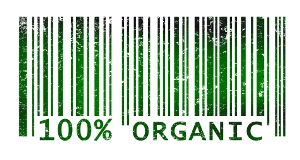 The LA Times recently reported a dangerous food myth that has been circulating throughout the health-conscious community as of late: cookies and chips are tastier, have fewer calories, less fat and more fiber when they are organic.
The LA Times recently reported a dangerous food myth that has been circulating throughout the health-conscious community as of late: cookies and chips are tastier, have fewer calories, less fat and more fiber when they are organic.
Organic food labeling has been a hot button issue lately as the nutritional and medical communities often find themselves at odds with food manufacturers that market foods in such a way that consumers perceive organic products as healthier choices.
“There are a lot of myths and misconceptions out there when it comes to food marketing,” said Lisa Moskovitz, RD, CDN, of Halevy Life. “For example, Twizzlers are labeled as ‘low-fat’ but they have the same amount of carbohydrates as the average loaf of bread. And that is just one example of how [consumers] are being misled by labeling.”
According to Dr. Kent Sasse, MD, of Sasse Guide, the U.S. Department of Agriculture (USDA) has established an organic certification program that requires all organic foods to meet strict government standards. These standards regulate how such foods are grown, handled and processed. In order to legally be considered organic, products must be at least 95 percent organic. To be labeled as 100 percent organic, items must be made entirely with organic ingredients.
Despite these regulations, there are many mixed messages out there when it comes to the nutritional content of organic food.
 “Nutritionally speaking, organic packaged foods [such as cookies and crackers] are no healthier than the conventional versions,” said Moskovitz. “When it comes to fruit and vegetables, the primary difference is that no chemicals or pesticides have been used in the growing (vegetables), raising (animals) or processing of a food item.”
“Nutritionally speaking, organic packaged foods [such as cookies and crackers] are no healthier than the conventional versions,” said Moskovitz. “When it comes to fruit and vegetables, the primary difference is that no chemicals or pesticides have been used in the growing (vegetables), raising (animals) or processing of a food item.”
In addition to being free of pesticides and chemicals, organic foods tend to be more expensive than conventional. If you’re looking to cut down your grocery budget, Moskovitz suggests choosing conventional fruits and vegetables and taking the extra care to wash them well before eating or preparing them.
“With organic produce, you don’t have to wash it as well because it’s already pretty clean,” Moskovitz said. “With conventional produce, wash it well and pat it dry to get rid of any remaining chemicals.”
When purchasing meat and poultry, Moskovitz said it isn’t as important to look for organic options as it is to look for products labeled ‘grass-fed.’
“Grass-fed animal products are higher in monounsatured fats and lower in saturated fats. They’re not organic, but typically have more health benefits.”
While organic food remains in the category of common food myths and misconceptions, experts point out that studies to-date are lacking in proving the nutritional superiority of organic foods.
“As a registered dietitian, my main concern at the end of the day is that my clients are eating plenty of fresh fruits and vegetables and getting the nutrients they need,” said Moskovitz. “Eating conventional produce is not harmful if you wash it properly. What is harmful is not eating them at all.”
